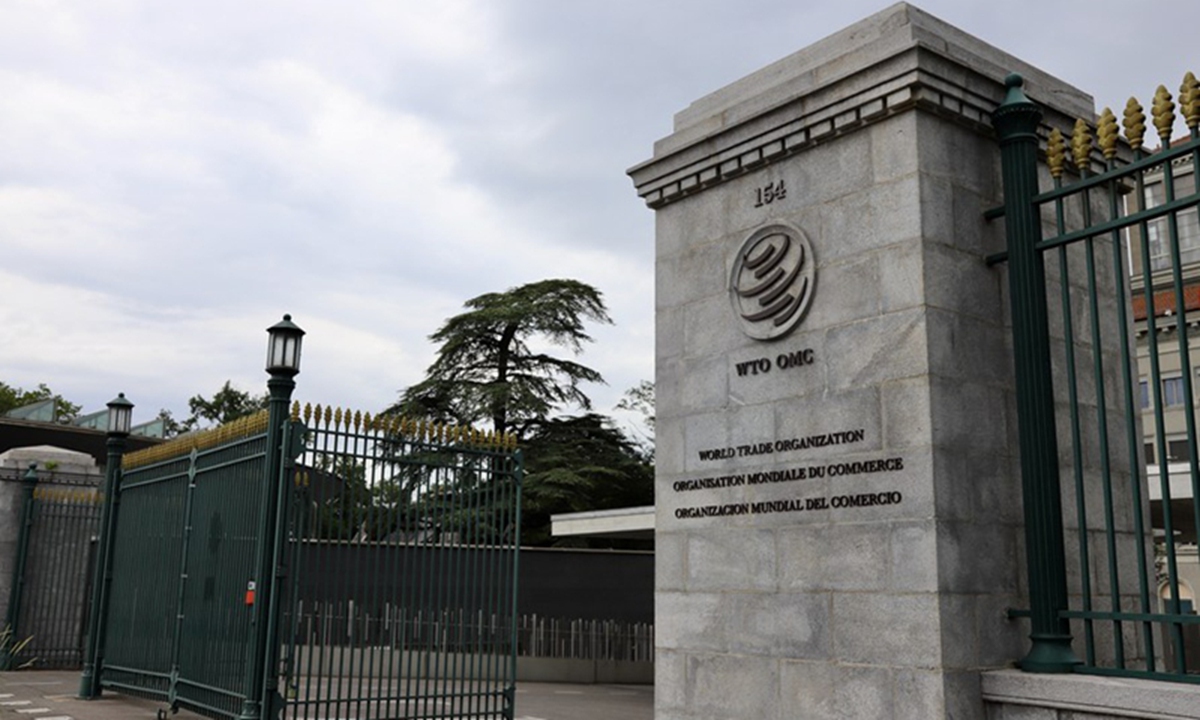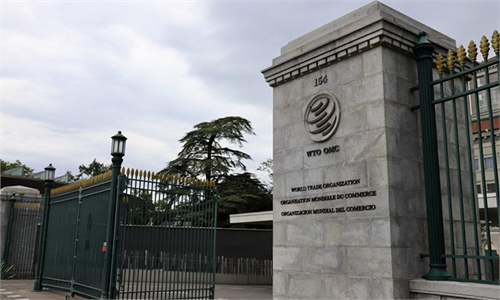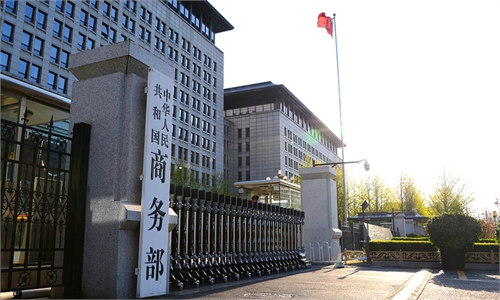WTO members should jointly safeguard the authority of the multilateral trading system

Photo: Xinhua
The Trade Policy Review Mechanism (TPRM) is one of the three major mechanisms of the World Trade Organization (WTO), which helps to increase the transparency of the multilateral trading system. Since China joined the WTO, it has actively participated in the WTO's trade policy review of its members. In December 2022, the WTO conducts a trade policy review of the US. Many WTO members raised questions about US trade policies, concerned about its undermining of the multilateral trading system. As an important member of the WTO, China has urged the US to fulfill its due obligations and responsibilities, and jointly support and maintain the multilateral trading system.China adheres to real multilateralism and is willing to work with other WTO members to safeguard the authority of the multilateral trading system. The multilateralism advocated by the West only regards a small number of countries as the dominant states, does not pay attention to the voice and interests of the majority of countries, and even is strongly exclusive in nature. Therefore, the true multilateralism advocated by China is characterized by equality and inclusiveness. China has always emphasized that the multilateral trading system with the WTO at its core is the cornerstone of international trade and the pillar for the healthy and orderly development of global trade, and firmly supports and maintains the multilateral trading system. China promotes worldwide trade and investment liberalization and facilitation by participating in, promoting, and fulfilling WTO-related issues, supports and maintains the role of the dispute settlement mechanism, attaches great importance to the trade policy review mechanism, fully supports developing countries' integration into the multilateral trading system, and firmly opposes unilateralism and protectionism. But unfortunately, the US puts its own interests above the interests of other countries and carry out unilateralism and bullying.
China opposes the politicization and weaponization of international economic and trade relations and other acts that disrupt the global industrial and supply chains. In the period of rapid economic globalization, enterprises are the main players, and international economic and trade relations are driven by the market and follow economic laws. The politicization and weaponization of economic and trade relations means that the government, in order to achieve its own political goals, violates market principles and economic laws, tries to influence corporate decision-making, and even directly intervenes in the operation of enterprises, using interdependent economic and trade relations as a weapon to suppress trading partners.
A typical case is that in order to suppress the development of China's high-tech industry, the US has politicized and weaponized economic and trade relations within the semiconductor industry. The US government has stretched the concept of "national security," abused export controls, and restricted US companies from selling products related to the semiconductor industry to Chinese companies. The US has even forced other economies to impose joint export controls on China. In order to achieve the goal of returning the semiconductor industry, the US government ignores the role of the market and forces related companies to invest and set up factories in the US.
The division of labor in the global value chain makes the connection between countries and industries extremely close. The politicization and weaponization of economic and trade relations not only directly affect the normal production and operation of Chinese enterprises, thereby affecting the development of China's high-tech industry, but also severely disrupt the global supply chain, impacting third-party countries and other related industries, and ultimately will lead to backlash against the US itself. The disorder of the global production chain and supply chain directly affects the entire world economy, worsening the already unstable recovery of the world economy. Based on this, China has always opposed the politicization and weaponization of economic and trade relations, and advocated that all countries should follow economic laws, adhere to market principles, and promote the free flow of production factors.
China urges the US to shoulder its due obligations and responsibilities and make a more constructive contribution. The stability of the multilateral trading system mainly depends on whether the big countries support it and whether the support is sufficient. If major countries do not support the multilateral trading system, or even deliberately sabotage it, the multilateral trading system will not be able to function. The US is the largest economy in the world today. It is the leading party in establishing the multilateral trading system after World War II, and it was once the leader. It should work with China and other WTO members to support the multilateral trading system.
Nevertheless, in recent years, the US' approach has moved in the opposite direction. First, the selection of judges of the appellate body of the dispute settlement mechanism at WTO has been obstructed many times, resulting in absence for judges and the paralysis of the appellate body.
Recently, the US said that it would refuse to implement the ruling of the expert group on the violation of the 232 steel and aluminum tariff measures, reflecting its disrespect for the dispute settlement mechanism. Second, to ignore the multilateral rules and principles of the WTO, pursue unilateralism, judge other countries' "violations" on the basis of the US' domestic laws, and unilaterally impose tariffs. Third, to continuously introduce trade protection measures to hinder the normal operation of globalization. Fourth, the "Inflation Reduction Act" recently promulgated by Biden contains a number of trade discriminatory and distorting subsidy measures, which are suspected of violating the basic principles of WTO Most-Favored-Nation treatment and national treatment.
During this review, many WTO members expressed concern that the US Inflation Reduction Act violated WTO rules. It is obviously unconvincing for the US to reply simply that it intends to administer the bill in a manner consistent with US law and the US' commitments under the WTO. If the multilateral trading system is destroyed, all countries in the world will suffer severely, and the US is no exception. The US should shoulder its obligations and responsibilities as a major country, make more constructive contributions, and earnestly safeguard the multilateral trading system.
In stark comparison, China actively promotes the WTO in playing a more important role. China makes full use of the three major mechanisms of the WTO. The Trade Facilitation Agreement is the most important multilateral achievement since the establishment of the WTO. During China's presidency of the G20 in 2016, it pushed many countries to complete the domestic ratification process of the Trade Facilitation Agreement. China also supports the multilateral negotiation model to play a better role, initiated the establishment of the "Friends of Investment Facilitation for Development," and proposed the negotiation form of the "Joint Statement Initiative."
China will continue to promote high-level opening up and promote the construction of an open world economy, which is also a manifestation of supporting and maintaining the multilateral trading system. In November 2022, China hosted the 5th International Import Expo, which is a major move by China to benefit countries around the world by expanding imports. China will continue to provide the world with new and greater opportunities through its own development. China adheres to real multilateralism and is willing to work with WTO members to promote the WTO to play a better role. The US should assume its own obligations and responsibilities, and work with WTO members to be a supporter and defender of the multilateral trading system.
The author is a deputy director of International Trade Division at Institute of World Economics and Politics at the Chinese Academy of Social Sciences. bizopinion@globaltimes.com.cn



